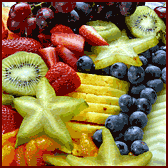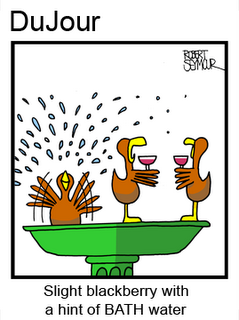A couple of years ago, a friend in Israel spearheaded a farm animal sanctuary. Several of the volunteers were living onsite, working hard physical labor in fixing up the grounds so they’d be suitable for the cows and chickens they were bringing in. He called me from the supermarket: “I’m so appreciative of the volunteers,” he said, “that I’m here getting them snacks: bamba, bissli, vegan chocolates, and the like. I wish I could do more.”
“One thing they might appreciate,” I said, “is a weekly vegetable and fruit delivery box from a local CSA. Maybe I can chip in?”
“They are ETHICAL vegans, NOT health nuts,” my friend responded. And that was that.
Health nuts?
The three main reasons for veganism that are advocated in books, films, and elsewhere, are health, animal rights, and environmentalism. And the conversations about each of these issues tend to be siloed. Some people come to veganism via Earthlings and some come to it via Forks Over Knives.
I came to veganism through ethics (biocentrism and ecocentrism), and even if this were not a healthy way to eat I’d probably make some compromises. Happily, if one is mindful of what and how much one eats, it is a very healthy choice. So, in this reality–and not in the alternative one, in which vegans lack nutrients–I think that the health-versus-ethics debate is a false one. And it is not harmless: it has several pernicious effects.
One side of this problem I’m seeing is an upsetting celebration, on the part of ethical vegans, of food that might not be cruel to animals, but is certainly cruel to people. Lists pop all around the Internet, rejoicing that Oreos and Fritos are vegan. Of course I’m happy that this stuff isn’t cruel to animals. That’s reason to rejoice, but it is not a good reason to eat it. It’s not good for you, and it’s not something that gives you energy and strength to fight for animals another day. This phenomenon is not limited to the low-grade, cheap packaged snack food (which has the scary advantage of being affordable, and thus an easily available sugar/starch fix): all around town, vegan businesses are popping up, which traffic in the upscale, albeit not particularly healthy, vegan fare. Vegan cinnamon rolls. Vegan deli sandwiches and cookies. Vegan cupcakes and donuts.
Don’t get me wrong: I’m delighted to see this vegan renaissance. I’m glad that, in our imperfect world, these businesses exist and even thrive. But giving vegans alternatives that mimic the (bad-for-you) options in the animal-consuming world can also a disincentive to eat better. I confess that I sometimes feel pulled to order some deep-fried thing or sweet from one of these good folks because I want my money to go into vegan businesses, even though ultimately this stuff makes me feel groggy and heavy. And while it’s true that buying sweets and starches is a choice, it is not an entirely free one given our evolutionary attraction to fat, sugar, and salt.
I think these businesses also crop up to counter the prevailing view that veganism is some sort of horrible, self-depriving sacrifice, which always makes me want to ask people: excuse me, have you ever eaten a tangerine or a pineapple? Or enjoyed a dish of freshly-picked greens and white butter beans (just to name what I had for dinner last night)? It is possible to have a very enjoyable and varied diet without making unhealthy stuff the centerpiece of your self-validation.
I understand the “everyone wants/needs a treat once in a while” mentality. But recently, through my work with Tilly Paz-Wolk and reading about emotional eating, I’ve come to realize that the emotional connotations of these treats–as compensation, comfort, you name it–hide deep needs for love, belonging, and acceptance. It takes more work to figure out what you actually want–empathy and compassion from a friend? More appreciation from colleagues or from a boss? Some help with household chores from family members?–but it is ultimately more rewarding, because a donut, vegan nor not, merely dampens your feelings for a few minutes and leaves your deeper needs unanswered.
The other side of this problem is the scorn and elitism of “health vegans” toward diets that are not healthy enough. The world of health veganism comes with a lot of discontents, the most odious of which is perhaps the term “clean eating,” which reeks of pathology and orthorexia. There’s a lot of nutritional Calvinism in that world, and a lot of guilt if the wrong thing touches your lips, and with all that self-flagellation comes flagellation of others–from commenting about other people’s food choices to just keeping your paternalistic and scornful thoughts to yourself (yes, others can read your scorn in your face even if you exercise some restraint and don’t voice them.) I’ve had family members discreetly move food items out of my reach at restaurants “for my own good” when they thought I wasn’t noticing. And of course, much of this goes hand in hand with the disrespect and dehumanization of our fat brothers and (especially) sisters.
Some of the “clean eaters” and health vegans take to spending money on powders and supplements and so-called “superfoods,” with the fads coming and going with the blink of an eye. Careful attention to the ingredients of this stuff reveals some surprising similarities to the food they scorn and disdain. Folks who advocate unprocessed foods (a good idea in itself, of course) sell you their own versions of highly-processed shakes and pills, supposedly to supplant the cheaper processed foods you won’t stoop so low as to eat. Sometimes, this stuff is harmful only to your wallet; other times, it can dissuade you from seeking empirically proven, life-saving medical care.
So, how do we reconcile these differences between the health and ethics seekers and bring some unity and compassion to this situation?
First, we rejoice in everyone who reduces their reliance on the animal industry, for whatever reason they choose. The intent is secondary; what mostly matters is the outcome, which is less cruelty toward animals, and that’s a net good. We thank everyone: flexitarians, vegetarians, vegans before 6, new vegans, old vegans. Each and every one of them, in small or big ways, is bringing us one step closer to the world we want to see, which is free of animal cruelty. We can gently encourage people to step up their ethical game, but ultimately, people need to awaken to compassion on their own.
Second, we decide to rely on fresh, seasonal produce as the main components of our diet, and to eschew our reliance on artificial “nutrients,” whether cheap or fancy. The one exception to this rule is vitamin B-12, which you should supplement if you’re vegan.
Third, we all need to wake up and see through the commercial interests of anyone who is selling us things. Oreos sell us temporary numbing and something very sweet and devoid of any nutritional value. Fancy vegan donuts sell us something more upscale but of similar nutritional value. Fancy powders and shakes sell us an image of health and reasons to snub others. Look at fonts, colors, advertising language, and ask yourself–beyond food, what am I being sold here? How is buying this supposed to say something about my self identity? The more aware we are of this, the more able we are to resist it.
Fourth, we refuse to neglect our health to prove the purity of our ideology. You are not less of an ethical vegan if you eat more fresh vegetables and fruit. It is not a betrayal of your ethics to forego buying that bag of vegan chips. You are not stabbing the ethical vegan movement in the back if you enjoy a banana in lieu of a donut.
Fifth, we provide honest and unvarnished opinions about animal welfare when appropriate (such as when we’re being asked), but otherwise, we stay out of other people’s plates–certainly where issues of weight could make the conversation strained and hurtful. Commenting on ethics is important, because the eater is hurting others, not just himself or herself, with their diet, but when done with animosity and without love and compassion it can be counterproductive. I’m on the fence about the Liberation Pledge, for exactly that reason. Sometimes it works wonders and sometimes it isolates and depresses (more on my version of the Pledge in another post.)
And finally, we listen to our bodies and our souls in making choices about food. When we do that, we start noticing patterns of hunger, cravings, and deeper needs. We listen carefully to our stomachs and reward them with qualities and quantities that are good for them. We take very good care of ourselves with quality fuels, so that we can continue to fight for a just world with energy and verve.







